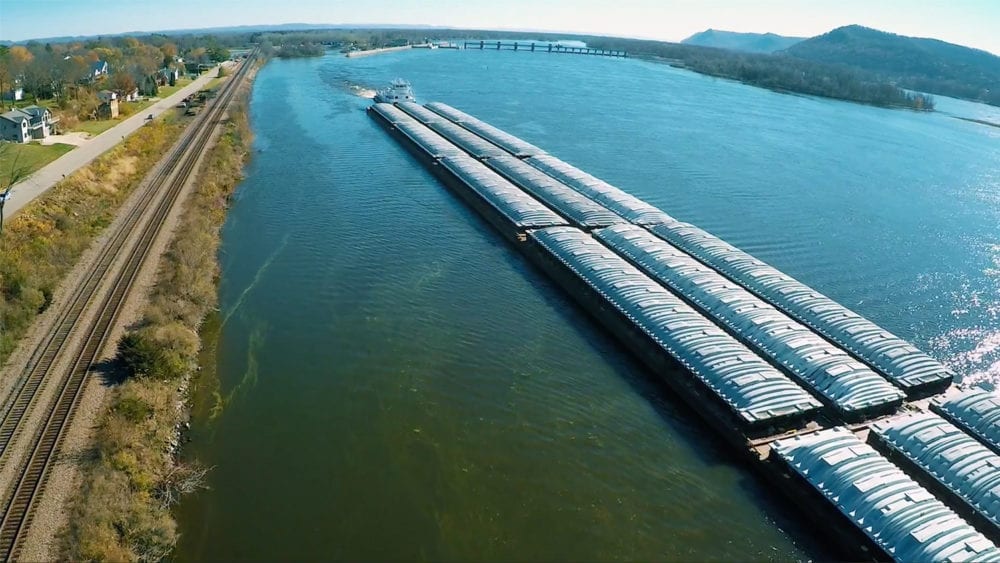Originally Published in The Resurgent on July 16, 2019
In recent weeks, opinion writers in a number of leading agriculture industry publications have been encouraging American farmers to ship their products in foreign vessels, arguing that it’s cheaper. They have also been urging repeal of the American law that is the last thin lifeline of the once-robust shipbuilding industry in the United States. Unfortunately, this line of thinking reflects the blindly globalist agenda that has been the bane of America’s economy for the last 50-years.
A recent op-ed by Gary Baise at FarmProgress.com is a prime example of how naysayers are trying to tear down the Merchant Marine Act of 1920, colloquially known as the Jones Act in favor of this globalist agenda.
While Mr. Baise has written some great articles about President Trump’s Make America Great agenda, especially on relieving farmers of big-government burdens like the Waters of the United States restrictions; in advocating for the repeal of the Jones Act he uses arguments from a different agenda, namely libertarian globalists who dislike that law.
He starts by ignoring the economies of scale to ship grain. It will always cost more per unit-mile to ship any product on shorter routes and on smaller vessels between domestic ports compared to shipping the same thing to Asia.
After the misleading number on shipping cost, Baise then recites libertarian globalist talking points for undoing the Jones Act.
The biggest beneficiaries of repeal would not be American farmers but the anti-American policies of other countries. Ships built and crewed by foreign powers can undercut other prices due to massive subsidies to their maritime industry, trying to monopolize the market. Cornering that market is enormous since 90% of the world’s cargo goes by ship.
For some years now, foreign countries have been giving mega-billion-dollar subsidies to win a monopoly over the maritime industry. That allows companies to offer sometimes lower prices for shipping grain and other commodities, because overseas governments are paying the difference. In China, for example, these subsidies are estimated to provide a 15-20-% advantage.
South Korea is being sued by Japan and the European Union, whose own subsidies can’t keep up with bigger ones in South Korea. So the World Trade Organization (WTO) is being asked to adjudicate. This would be similar to the WTO ruling this spring that Europe’s subsidies for Airbus harmed the U.S. aviation industry, leading to approval for $21-billion a year in retaliatory American tariffs on European goods.
It took the WTO 14 ½ years to reach that decision. Hoping for a similar ruling against foreign shipbuilding subsidies would take who knows how long? This is why the United States must have its own policies to protect our jobs and security.
The impact of the Jones Act is far too small to overcome other countries’ massive incentives to shipbuilders, yet it benefits our homeland security. Only the need to construct our military ships has kept America’s shipbuilding industry afloat.
On the worldwide scale, the federal government’s Maritime Administration lists only 181 ships (1,000+ gross tons) in the world which are American-flagged civilian vessels, a small fraction of over 50,000 ships in the global merchant fleet.
The Jones Act, which Baise dislikes, only protects a small fraction of America’s maritime trade. Its requirements are limited to cargo shipped from one U.S. port to another U.S. port, and not the far-more massive trade between the U.S. and foreign ports. In other words, only purely domestic shipping is affected, which is a homeland security issue. Similar laws in other countries are used to protect their internal waterways as well.
Those who would subvert the Jones Act are part of the never-ending effort to discourage incentives to Buy American. The debate is as old as the United States. Our very first Congress adopted laws to promote both a strong presence at sea and to protect domestic waters. The economist Adam Smith argued that a strong merchant fleet was vital to national interests.
Other countries may offer us financial incentives to weaken our shipping industry. But we should tell them, “No.”
Ernest Istook is a former U.S. Congressman who now teaches political science.



Comments are closed.